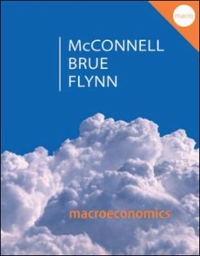please answer
Question 18 1 pts 18. Before WWII, Japanese Emperor Hirohito led the country on a political path to ensure they would enter the war. True False Question 19 1 pts 19. In 1941 General Tojo Hideki became the Japanese Prime Minister med the country into a military democracy with the goal of dominating Asia. O Tru False Question 20 1 pts 20. In the 20th century, dictatorships in the Soviet Union, Germany, Italy, and Japan promoted ultranationalist values. These values were fostered by domestic and foreign policies, and protected by the use of the military and police forces. O True False Question 18 1 pts 18. Before WWII, Japanese Emperor Hirohito led the country on a political path to ensure they would enter the war. O True False Question 19 1 pts 19. In 1941 General Tojo Hideki became the Japanese Prime Minister, and transformed the country into a military democracy with the goal of dominating Asia. O Tru False Question 20 1 pts 20. In the 20th century, dictatorships in the Soviet Union, Germany, Italy, and Japan promoted ultranationalist values. These values were fostered by domestic and foreign policies, and protected by the use of the military and police forces. O True OFall Question 18 1 pts 18. Before WWII, Japanese Emperor Hirohito led the c political path to ensure they would enter the war. O Tru False Question 19 1 pts 19. In 1941 General Tojo Hideki became the Japanese Prime Minister, and transformed the country into a military democracy with the goal of dominating Asia. True OFals Question 20 1 pts 20. In the 20th century, dictatorships in the Soviet Union, Germany, Italy, and Japan promoted ultranationalist values. These values were fostered by domestic and foreign policies, and protected by the use of the military and police forces. True O False Question 21 1 pts 21. To strengthen the ultranationalist movement in Nazi Germany, propaganda was used that instilled values in society glorifying Germany's past greatness, and promoting fear of anyone considered "inferior". The Kristallnacht is an example of this ultranationalist policy resulting in tangible effects. True False Question 22 1 pts 22. Traditional histories and values that form part of a society can be used to foster a sense of nationalism in a country. It has been seen from the events of the past that fostering traditional values and beliefs (such as idealizing the past, taking pride in race and culture, and valuing duty and obedience) to a great extent is a good way to combat the growth of ultranationalist movements. True False Question 21 1 pts 21. To strengthen the ultranationalist movement in Nazi Germany, propaganda was used that instilled values in society glorifying Germany's past greatness, and promoting fear of anyone considered "inferior". The Kristallnacht is an example of this ultranationalist policy resulting in tangible effects. True False Question 22 1 pts 22. Traditional histories and values that form part of a society can be used to foster a sense of nationalism in a country. It has been seen from the events of the past that fostering traditional values and beliefs (such as idealizing the past, taking pride in race and culture, and valuing duty and obedience) to a great extent is a good way to combat the growth of ultranationalist movements. O True O False







